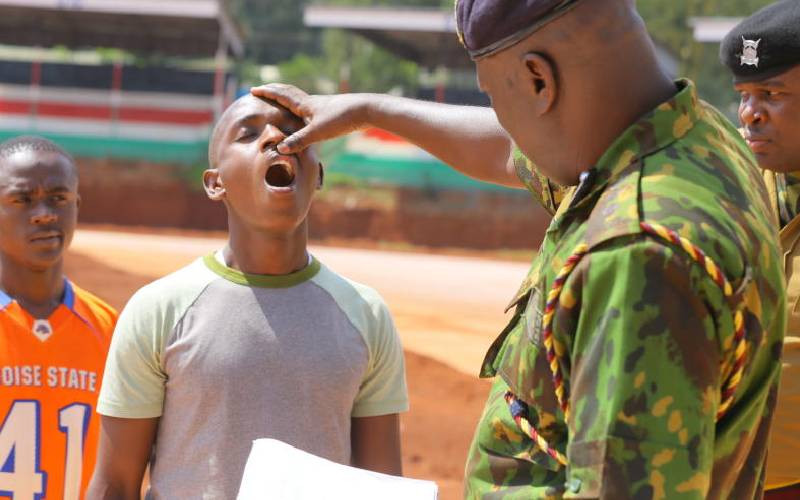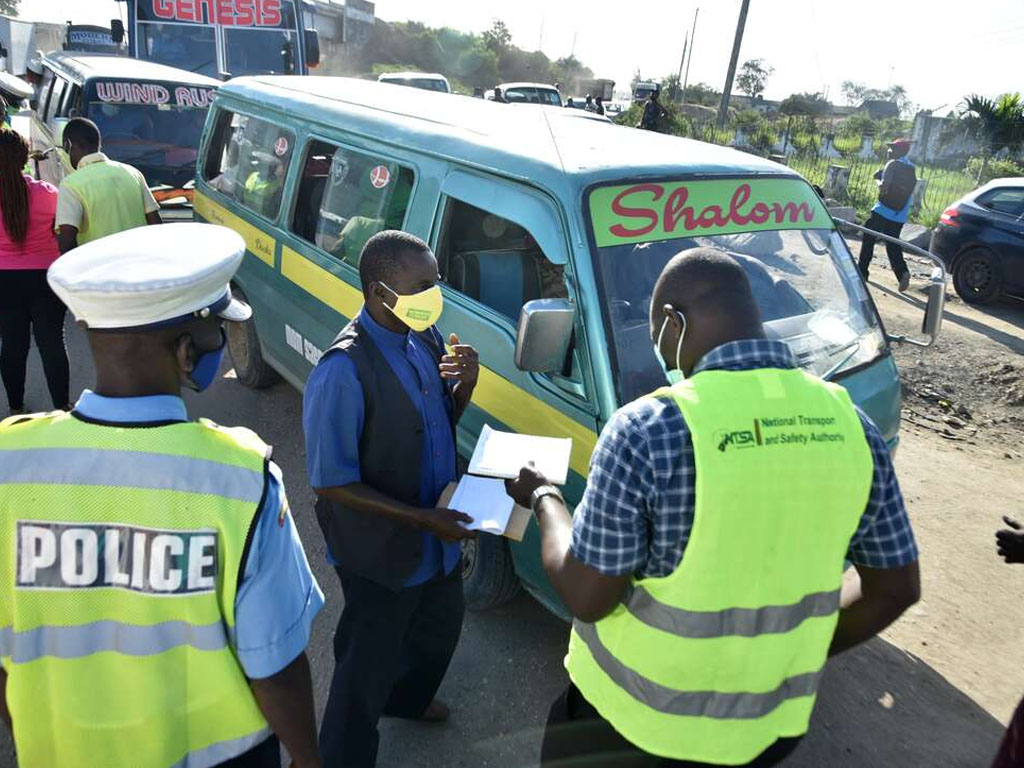The National Police Service will resume officer recruitment in September, ending a three-year freeze caused by budget constraints, Inspector General of Police Douglas Kanja has announced.
Speaking on Sunday, Kanja said the exercise will help address a shortage of about 5,000 officers and move the service closer to the United Nations’ recommended police-to-population ratio of 1:450.
“We expect the recruitment exercise to take place around September or October. Remember, for the last three years we haven’t enlisted new officers to beef up our numbers as we aim to attain the United Nations’ recommended ratio of 1:450,” Kanja said.
The last mass recruitment was in 2022, with the newly enlisted officers graduating the following year. In the three years without recruitment, the service lost personnel through retirement, resignation, dismissal, and death.
Kanja noted that the police are currently overstretched, tackling multiple security threats including cattle rustling, banditry, terrorism, homicides, carjackings, violent robberies, human trafficking, drug trafficking, smuggling, and traffic offences.
He warned that inadequate personnel, resources, and equipment limit the service’s ability to effectively respond to such crimes.
In a bid to enhance transparency, the National Police Service Commission (NPSC) has developed a secure, digital recruitment system to curb corruption.
“We have undertaken all necessary steps to ensure the next recruitment is conducted digitally. This will help seal corruption loopholes within the recruitment process,” said NPSC Chief Executive Officer Peter Leley.
However, Kanja clarified that the new digital platform will not be used in the upcoming intake, as it still requires public participation and benchmarking before its rollout.
Last Thursday, Interior Principal Secretary Raymond Omollo encouraged young Kenyans to seize the opportunity once dates are officially announced.
Interior Cabinet Secretary Kipchumba Murkomen has hinted at sweeping reforms for the recruitment, including eliminating bribery, extending the recruitment period, involving more stakeholders, and ensuring all activities end by 4:00 pm.
Murkomen also warned against past practices where successful applicants were allegedly removed from the list or asked for bribes disguised as “medical letters.”







online casino accepts paypal us
References:
ipcollabs.com
us online casinos that accept paypal
References:
jobswheel.com
Reviewers highlight Rocketplay’s responsible gambling measures, such as
advanced self-control tools and AI monitoring, as
standout features. The VIP program earns praise from loyal players who appreciate the progressive rewards and
personal attention at higher levels. To claim your welcome bonus, complete registration and make your first deposit
of at least $30 AUD. Rocketplay follows standard verification procedures to protect players and meet regulatory requirements.
It also establishes clear dispute resolution processes, ensuring players
have independent channels for resolving issues.
In 2020, Dama NV debuted their new online casino website, RocketPlay.
Players can enjoy free games and benefit from a variety of secure payment options.
Immersive live dealer games streamed in HD with professional croupiers and social
interaction. RocketPlay App Casino is the perfect choice
for players who want to use their devices for endless
betting and casino fun.
The RocketPlay Casino App makes it easy to play on the go.
RocketPlay Casino offers plenty of benefits, but it’s good to weigh the pros and cons
to see if it’s the right fit for you! With such reliable support, you
can focus on having fun and winning big! RocketPlay
Casino provides 24/7 customer support, so you can get assistance
anytime, day or night. Just visit the site, log in, and start
playing instantly. RocketPlay Casino is also optimized for mobile
browsers.
References:
https://blackcoin.co/skycrown-online-casino-au-pokies-payid-neosurf-fast-payouts/
John and I are having such a nice time but we’re taking things
slowly. “Neither of us thought of it as anything else until… I don’t know how things change, but something does,” Lisa
admitted at the time. He said he was nervous because it was his first time on telly.
Lisa claimed she and John actually met for the first time
on This Morning almost 20 years earlier, when Lisa was a guest and
John was cooking, but said he didn’t remember. He has been married three times,
and has four children. STRAIGHT-TALKING TV chef John Torode stood
by his wife when she made an allegation against his shamed co-star Gregg Wallace – and now it’s her turn to support
him.
Your source for the lifestyle news, gossip and curated articles from top sources.
Get the latest creative news from FooBar about art, design and business.
We occasionally treat members to special offers, promotions and
ads from us and our partners. The couple, who co-host ITV’s John and Lisa’s Weekend Kitchen, are set to delight audiences once more with their
distinctive culinary chemistry, although John acknowledges that things have shifted over time.
Bundling shipping fees into your product pricing can enhance perceived
value while allowing for transparency at the checkout stage.
Facebook Marketplace allows you to use prepaid shipping labels,
which often provide discounted rates through partners like USPS and
FedEx. Calculating shipping fees accurately involves considering
several key factors. This encourages community engagement and may lead to repeat business, particularly from customers in your area.
Options include standard shipping methods like USPS and FedEx, which allow
you to calculate shipping costs based on dimensions and destination. Choosing your shipping preferences plays a
key role in customer satisfaction and operational efficiency.
References:
https://blackcoin.co/pokiesurf-a-quick-overview/
Geben Sie Ihre Stadt ins Suchfeld ein oder wählen Sie sie aus
der Übersicht, um ein Casino in der Nähe zu finden. Lust auf ein bisschen Glücksspiel oder
einfach nur eine unterhaltsame Nacht? Sicherheitsmaßnahmen und Spielerschutz stehen stets im Vordergrund, um allen Gästen ein sicheres und verantwortungsvolles Spielumfeld zu
bieten.
Der letzte Eintrag aus Niedersachsen ist auch ein Casino, das sich ausschließlich auf Automatenspiele stützt.
Aus dem Alltag entführen Sie hier 100+ Automatenspiele und einige Casino-Klassiker, wie Amerikanisches Roulette, Blackjack oder Texas Hold’em.
Der nächste Eintrag aus Niedersachsen gehört zu den Spielbanken in Deutschland, die Ihnen sowohl Slots als auch
Amerikanisches Roulette anbieten. Das Spielangebot schmücken sowohl Slots als auch Automatenvarianten klassischer Tischspiele.
References:
https://online-spielhallen.de/gizbo-casino-mobile-app-ihr-ultimativer-leitfaden/